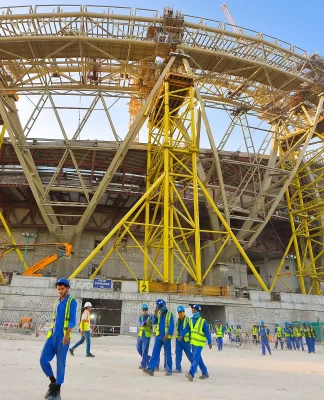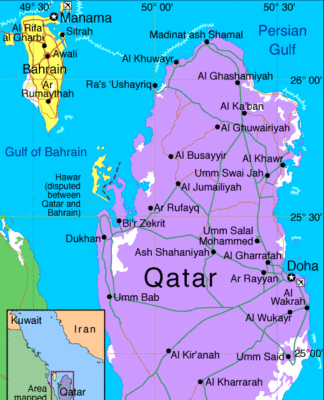Analysis
In a region as volatile as the Middle East it’s all about the rules of the game – which have now shifted
Each side needs to have a rough idea how the other might react if the entire region wants to avoid catastrophic conflagration.
Dominic Waghorn
International affairs editor @DominicWaghorn
Friday 19 April 2024 11:17, UK
An Iranian woman walks past an anti-Israel banner with a picture of Iranian missiles on a street in Tehran
Pic:WANA/Reuters
Image:
An Iranian woman walks past an anti-Israel banner in Tehran. Pic: WANA/Reuters
Why you can trust Sky News
It is too early to say for sure, but this looks like a calibrated counterstrike against Iran designed to draw a line under an extremely dangerous episode for the Middle East. Long-term though the damage is done.
Israel has chosen to hit back inside Iran but in a way Iranians can play down, avoiding the need to strike back in an escalating round of tit-for-tat direct action. So far Iranian officials are doing just that.
The target was well chosen. Not an eye for an eye, but an airbase for an airbase. The only site Iran hit successfully last Saturday was an Israeli airforce base used in the attack on its embassy compound in Damascus on 1 April.
And now Israel has reportedly struck its Iranian equivalent near the city of Isfahan.
Map
That is important for another reason.
The city is home to some of Iran’s most sensitive nuclear facilities.
The message is clear. We can hit you where it hurts at will. Next time could be much more painful.
Middle East latest – follow live updates
'Explosions' seen and heard over Isfahan in Iran1:52
Play Video – ‘Blasts’ shown over Iran in IRGC video
‘Blasts’ shown over Iran in IRGC video
Ahead of this counterattack, the Iranians were sounding bellicose. The tiniest provocation they said would be met with a massive and harsh response. The Israelis have read that as a bluff as well they might.
The assumption is that Iran has no appetite for a much bigger war with Israel and its powerful Western allies. There is no margin for the mullahs in Tehran in a punishing regional escalation.
But Israel crossed a line attacking their embassy compound in Damascus and it demanded a response.
Iranian consulate building in Damascus 'destroyed' and multiple killed0:59
Play Video – Iranian consulate building ‘destroyed’
Iranian consulate building ‘destroyed’
Chapter closed? Well up to a point
Outside powers including Britain and America may want to force the conflict between Iran and Israel back into the shadows.
De-escalation is the mantra. Making sure the dangerous escalation sparked by the attack on the embassy in Damascus is halted.
But the lasting impact is irreversible.
In a region as volatile as the Middle East, and so utterly devoid of trust, it’s all about the rules of the game.
Each side needs to have a rough idea how the other might react if the entire place wants to avoid catastrophic conflagration.
Those rules have shifted.
Iran has crossed one of its own red lines. For almost half a century it has never attacked Israel head-on. That taboo has in itself held it back from taking on its enemy directly. That barrier to action has now gone.
For that reason, Israelis fear, it will be more likely to do so again in future.
Read more:
Iran’s response to Israeli strike so far is telling
Israel’s attack on Iran reflects badly on Biden
Israel appears to have carefully chosen response
Follow Sky News on WhatsApp
Follow Sky News on WhatsApp
Keep up with all the latest news from the UK and around the world by following Sky News
Israel’s failure of intelligence
There’s been another worrying shift, in the way Israel is seen in the region. Its power of deterrence has been weakened. For a second time, it has made a miscalculation through a failure of intelligence.
The first was on 7 October, when it failed utterly to anticipate the devastating day of attacks by Hamas.
The second was on 1 April. It seems clear now from numerous reports that the Israelis underestimated how Iran would respond to its attack on the embassy compound in Damascus.
Israelis had for six months been picking off Iranian targets in Syria and Lebanon without massive Iranian retaliation. That led to hubris it seems as Israeli commanders planned the Damascus hit.
They had never targeted so much of the Iranian military leadership in one place before, and the location was regarded by Iran as sovereign diplomatic territory.
And yet, Israeli intelligence failed to predict Iran’s likely reaction. That failure exposed Israel to its first direct attack by a sovereign state in thirty years.
The mystique of Israel’s supposedly all-knowing all-seeing intelligence agencies has been dealt another blow.
All this makes the Middle East a more dangerous place whatever happens next.






























